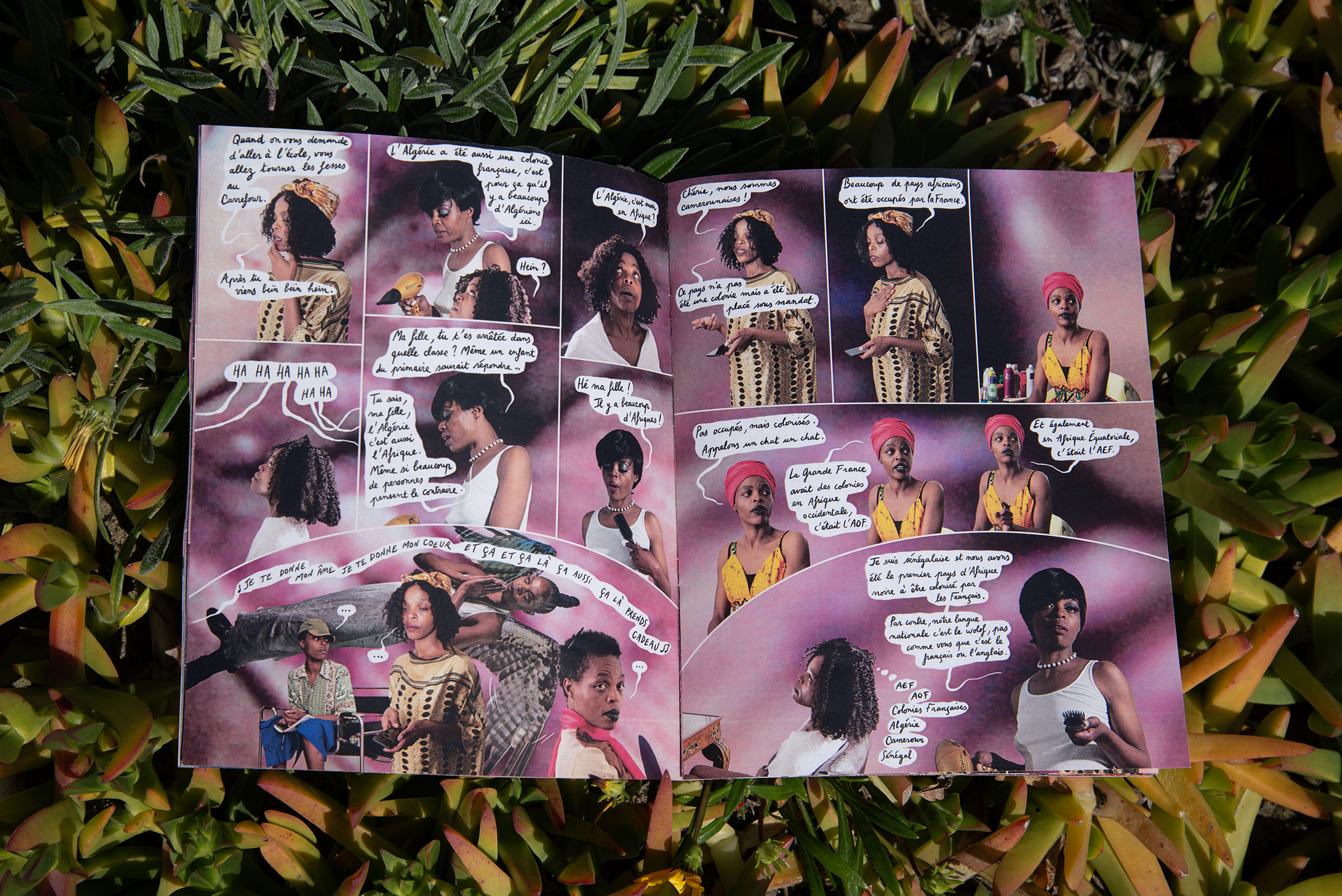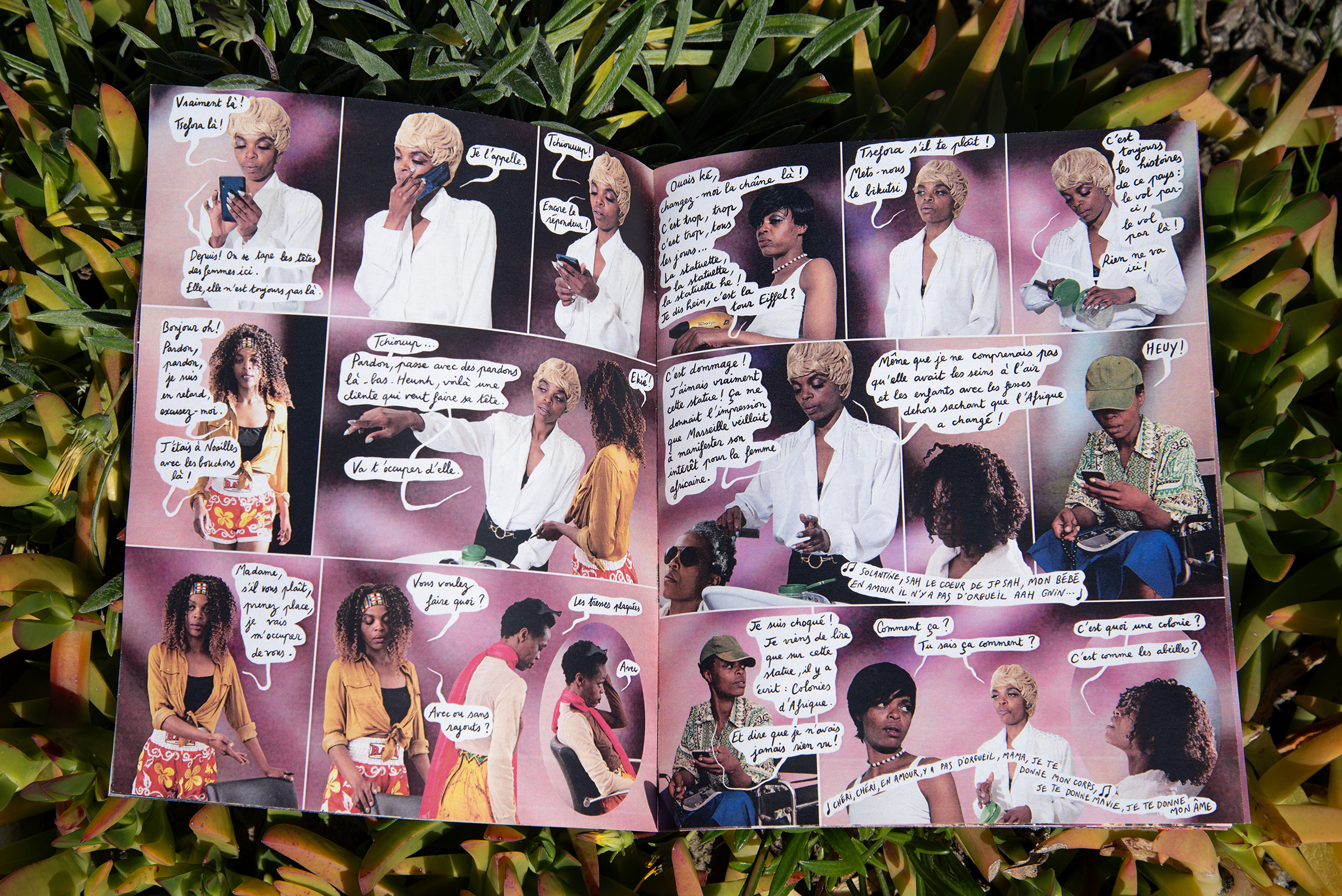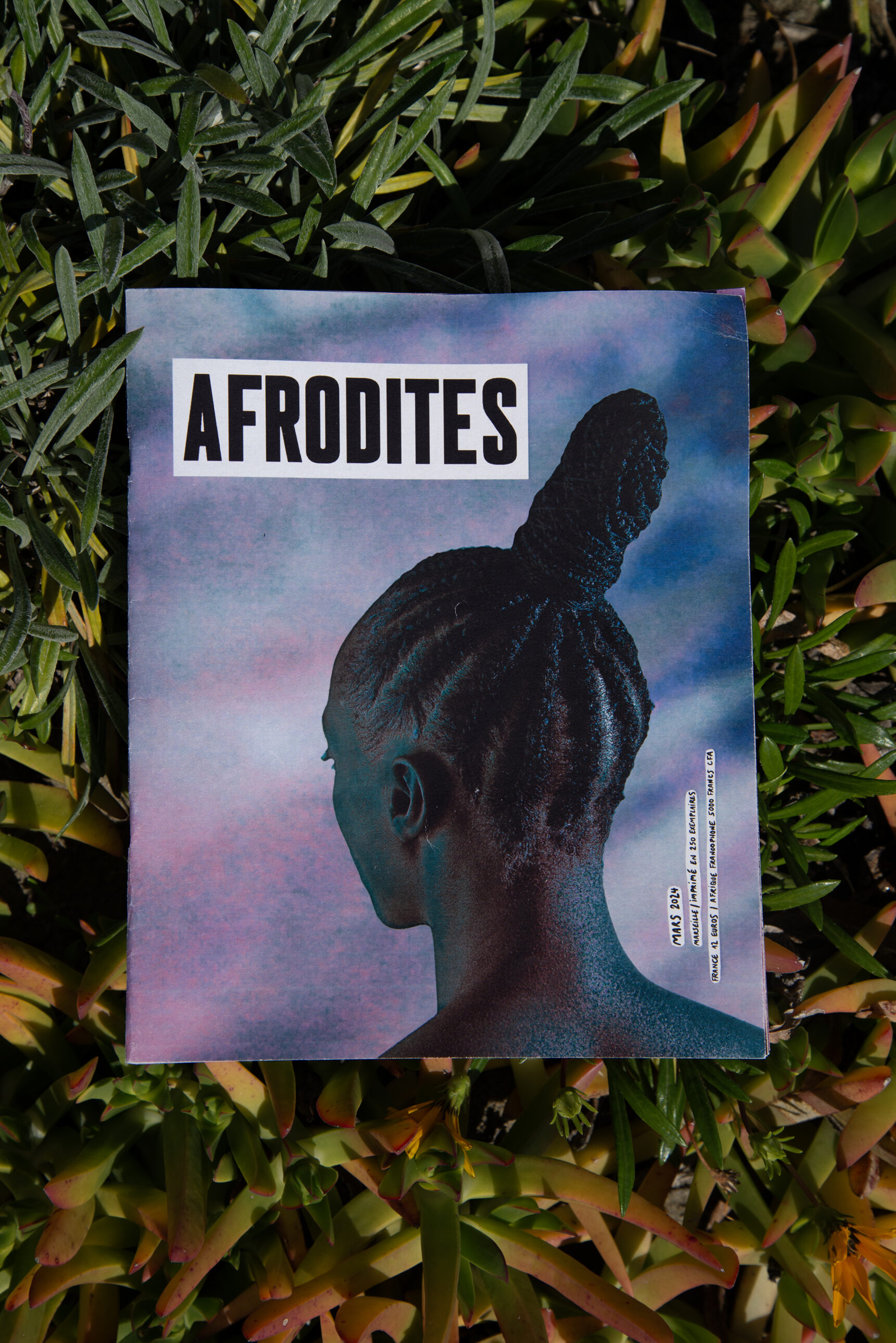Afrodites
In 2019, Cameroonian performer Marie-Rose Frigiere is embarking on a lengthy survey of Marseille's businesses, associations, institutions and archives.
Nourished by this research, she wants to imagine new narratives, more faithful to the reality experienced by diasporas and their ways of inheriting colonial heritages.
Despite their presence in the city for over a century, the various strata of black history in Marseille have disappeared, and are disappearing without a trace.
In Noailles, there are many African hairdressing salons, where customers can chat and exchange information. From 2019 to 2022, Marie-Rose conducted interviews there to meet the different types of people who frequent them and explore the many angles of African diasporic culture.
After meeting with Amélie Laval, a visual artist and photonovelist, they decided to imagine a fiction in the form of a photo novel, called Afrodites, which would use the reflections from the encounters at these salons, and which would then be distributed in this neighborhood as well as in Marseille, France and abroads.
Nourished by this research, she wants to imagine new narratives, more faithful to the reality experienced by diasporas and their ways of inheriting colonial heritages.
Despite their presence in the city for over a century, the various strata of black history in Marseille have disappeared, and are disappearing without a trace.
In Noailles, there are many African hairdressing salons, where customers can chat and exchange information. From 2019 to 2022, Marie-Rose conducted interviews there to meet the different types of people who frequent them and explore the many angles of African diasporic culture.
After meeting with Amélie Laval, a visual artist and photonovelist, they decided to imagine a fiction in the form of a photo novel, called Afrodites, which would use the reflections from the encounters at these salons, and which would then be distributed in this neighborhood as well as in Marseille, France and abroads.


